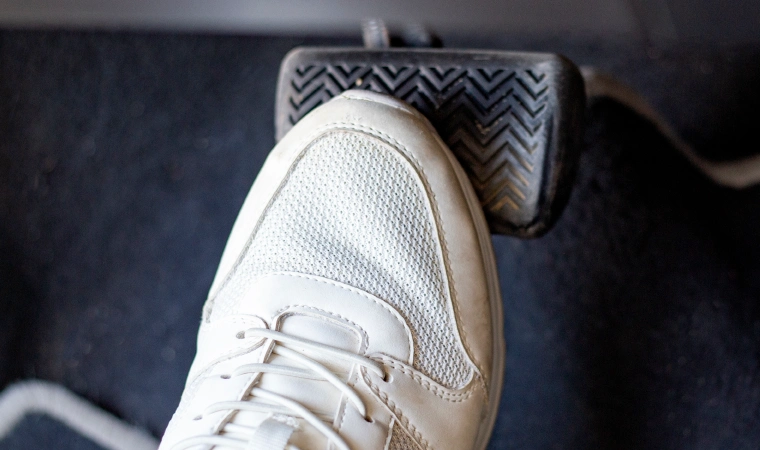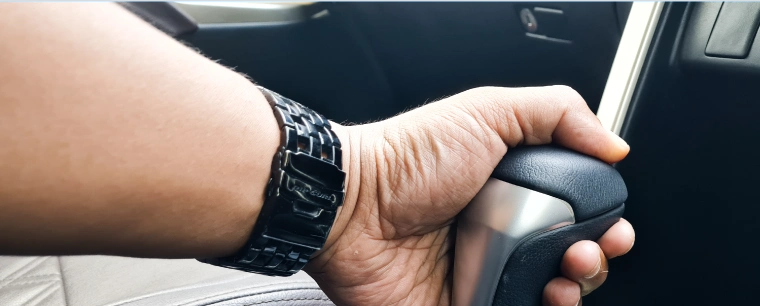Engine Braking: The What, Why & How
![]() Published on: Monday, 22nd April 2024 |
Published on: Monday, 22nd April 2024 | ![]() Author: Jack Dreyer
Author: Jack Dreyer
If you’re keen to extend the lifespan of your braking system then engine braking may be of interest to you. Your brakes are a key component of your vehicle so it’s important to not overwork them and cause unnecessary damage and wear and tear. This is where engine braking can come in handy.
Before you can implement engine braking into your braking routine, it's crucial to know what it is, how it works and what the benefits of using it are. If you’re keen to know how engine braking can work alongside your manual braking, keep reading on.
What is engine braking?
Engine braking allows you to slow down your vehicle by releasing the accelerator, without having to use your manual brakes. This process of slowing down can provide many benefits to your car. For example, when used, engine braking can be very effective when driving down steep hills and as a way to reduce wear and tear to the braking system.
It’s commonly used in manual cars because of the inclusion of a gearbox, however, vehicle owners can use the method when driving an automatic car.
How does engine braking work?
Essentially, engine braking works by releasing the accelerator pedal to allow the air intake valve to close and create a vacuum. The vacuum limits the amount of air entering the engine’s cylinders, which creates resistance to the pistons and consequently decelerates the engine, i.e. your vehicle slows down.
Not sure how this works in practice? Well, if you’re travelling on a 30mph road and approaching a traffic light, you can slow down gradually by removing your foot from the accelerator and switching down in the gears one at a time.
It’s important not to switch down gears too quickly otherwise this will create a jolt and an uncomfortable noise from your engine. It can also be dangerous to switch down too quickly, as engine braking doesn’t initiate the brake lights and provides no warning to cars behind you that you are slowing down. Switching your gears down slowly will gradually decrease your speed and provide ample warning to vehicles behind you.
You won’t be able to bring the vehicle to a full stop by engine braking, so you will need to manually brake to stop fully.

The benefits of engine braking?
Whilst we don’t recommend using engine braking every time you need to slow down your vehicle, there are several benefits to using it alongside manual braking.
Here are some of the key benefits that we think are worth mentioning:
- It reduces wear and tear to your braking system because the brakes are not creating as much friction, and therefore are less strained
- Switching to a lower gear can help to maintain a safe speed whilst driving downhill and gives the driver more control of the vehicle
- It reduces the risk of skidding on icy roads because it gives the driver more control in comparison to using the manual brakes
- It provides an extra safety measure if an emergency occurs and your manual brakes fail
As mentioned before, engine braking won’t bring your vehicle to a full stop, so it’s imperative that you don’t solely rely on this method, and use both manual and engine braking as part of your routine.
Need your brakes serviced?
It’s clear that engine braking can offer significant benefits to the handling of your vehicle and the health of your braking system. Just remember to use a combination of engine braking and manual braking, and you’ll be good to go.
Do your brakes need servicing? It’s important to get your brakes regularly maintained to ensure they perform optimally, so visit our experts at your local Tyre Pros centre for a free brake check.
In the meantime, keep up to date with the latest motoring, brakes, and tyres guidance on our Advice Hub or contact us with any questions.

